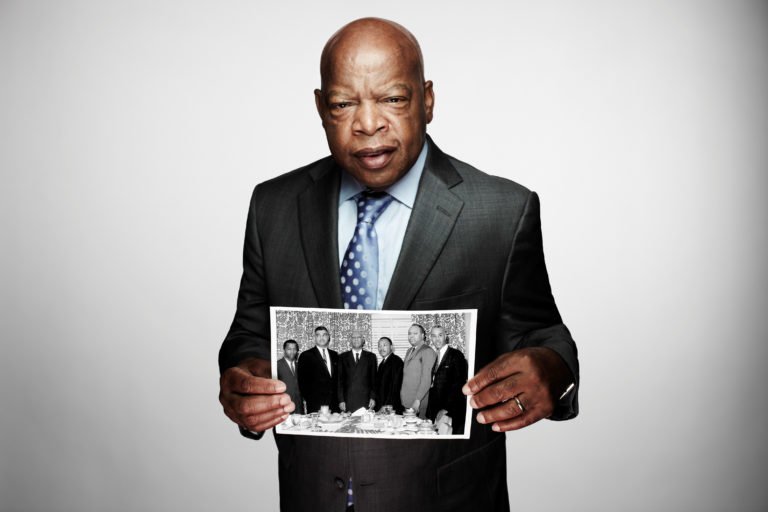“I began to notice that my running life and my meditating life were beginning to merge.” Roger Joslin is an Episcopal priest and the author of “Running the Spiritual Path,” a how-to guide on running as meditation and prayer.
Podcasts
View
- List View
- Standard View
- Grid View
912 Results
“When words bring you closer to the prisoner in his cell, to the patient who is dying on his bed alone, to the starving child, then it’s a prayer.” Elie Wiesel, the beloved writer known for his memoir of the Holocaust, “Night,” speaks of the power of prayer and forgiveness in the wake of profound suffering.
“I discovered that you have to have this sense of faith that what you’re moving toward is already done.” Civil rights leader John Lewis on living as if the “beloved community” were already our reality.
“My love for running started with me running towards my mom.” Mallary Tenore ’s mother, Robin Jo, introduced her to one of the defining practices in her life: running — which has been equal parts destructive, spiritual, and healing.
“If you’re sure about something, you don’t need faith. It’s when you have the doubts that faith kicks in. And that’s true in science as well as anything else.” Vatican astronomers Brother Guy Consolmagno and Father George Coyne on the joy of discovery and delighting in what we don’t know.
“Running challenges people to see me from a different perspective.” In Sikhism there is a duty to “hone the spiritual body in the same way that we hone our spiritual selves.” Simran Jeet Singh holds that in his practice as a runner.
“How in our daily lives are we connecting with ourselves and everything around us? Because that’s where real, energetic transformation comes from.” Feminist playwright Eve Ensler speaks of the affirming physicality of our bodies, and of finding true contentment in the lives we already lead.
“I cannot even begin to push myself to the extent that God can help me to push myself.” Christy Marvin is the mother of three boys and a mountain runner. She’s won six different Alaska mountain races. For Christy, running is a spiritual practice.
“There’s something magnetic about a group of people that say, ‘Hey, we don’t have it all figured out, and we need each other.'” New Monastic and Simple Way founder Shane Claiborne on bridging the gap between the structures we are raised in and the human needs around us.
“You’re running often side-by-side, or one person in back of the other, rather than looking somebody in the eyes as you’re being vulnerable with them.” John Cary is an architect, a father, and a marathon runner. For him, running is a spiritual practice.
“The challenge of our future is to say, are we going to connect and amplify positive tribes that want to make things better for all of us?” Entrepreneur and digital wise man Seth Godin on our capacity to use connection to elevate and advance the human spirit.
“Running has helped me become more present.” Some people turn to prayer or meditation or yoga as a way to slow down and make sense of their lives. Ashley Hicks, the co-founder of Black Girls Run!, found that in running.
It was supposed to be a discussion about “culture and conscience” with two social scientists, as part of a public gathering of the Center for Humans and Nature at the American Museum of Natural History. But Jonathan Haidt is studying the relationship between capitalism and moral evolution, and our conversation took off from there in surprising directions. The liberal view of capitalism as essentially exploitative may remain alive and well, Haidt says. But the ironic truth of history is that capitalism actually generates liberal values as it takes root in societies. Our conversation preceded this American cultural-political season but offers provocative perspective on it.
“Sometimes the pain of the world seems incomprehensible. And if there’s anything that balances it, it’s wonder at the world, the amazingness of people.” Mindfulness meditation teacher Sylvia Boorstein gives counsel on finding joy and spiritual practice embedded in the rhythms of everyday life.
“What else have I been lying to myself about? What else have I been hiding from ’cause I was scared?” Teacher, writer, and Mexipina Christina Torres on how running helps her deal with anxiety, body image, and understanding her deepest sense of self.
“You’ve got to be willing to risk in order to make change. You’ve got to approach differences with the notion that there is good in the other.” Scholar and activist Frances Kissling speaks of good will and understanding, rather than agreement or victory, as bridges between difference.
“The number one objective of my Olympic pursuit was to heal a broken soul.” Gold medalist Billy Mills set a world record in the 10,000-meter race at the 1964 Games. He shares how running created a refuge for spirituality and personal growth.
“The point of gathering stillness is not to enrich the sanctuary or the mountaintop, but to bring that reality into the motion, the commotion, of the world.” Wanderer and writer Pico Iyer on outer stillness as an essential catalyst to a rich inner life.
The Pause
Join our constellation of listening and living.
The Pause is a monthly Saturday morning companion to all things On Being, with heads-up on new episodes, special offerings, event invitations, recommendations, and reflections from Krista all year round.
Search results for “”
View
- List View
- Standard View
- Grid View
Filters


